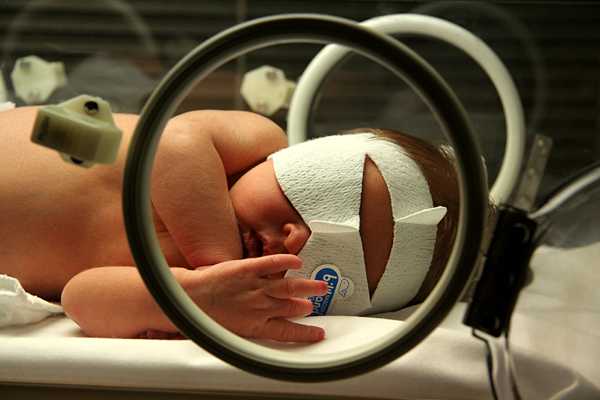Neonatal jaundice is caused by unconjugated bilirubin in a newborn’s body. It’s presently the most common condition that requires medical attention or hospital readmission for newborns. This condition can have dire consequences, so early detection and treatment is crucial.
Symptoms Of Neonatal Jaundice
It’s common practice for hospitals to check newborns for jaundice before release,however parents should be aware of what to look for. Some symptoms of jaundice in infants include:
- Yellow sclera (white part of the eyes)
- Yellow skin, especially the abdomen and limbs
- Baby is hard to awaken or lethargic
- Baby is not gaining weight
If these symptoms appear after a child has been sent home from the hospital, it may be advisable to bring them back in for medical treatment.
Causes Of Neonatal Jaundice
Jaundice in infants can often be caused by the liver being underdeveloped. This leads to an inability for the liver to properly break down the bilirubin in their bodies. Besides immature livers, some other causes of this condition include:
- Blood infection (sepsis)
- Viral or bacterial infection
- Malfunction of the liver
- Deficient enzymes
- Internal bleeding
- Abnormal red blood cells
If symptoms of jaundice appear, the child will need to be checked for underlying causes to form a treatment plan.
Factors That Increase Risk Of Neonatal Jaundice
There are some factors that make jaundice more likely in infants. These factors include:
- Bruising during birth
- Mother and child’s blood types are different
- Birth before 38 weeks
- Breastfeeding difficulties
If a child has these risk factors, their parents and medical team will need to monitor them.
Treatment Of Neonatal Jaundice
To avoid acute or chronic complications, jaundice needs early treatment. Some ways it can be treated include:
- Light therapy
- Intravenous immunoglobulin
- Exchange transfusion
These methods focus on diluting pathogenic antibodies in the child’s blood that cause jaundice or, in the case of light therapy, help the child’s body to more easily break down and excrete the excess bilirubin.
